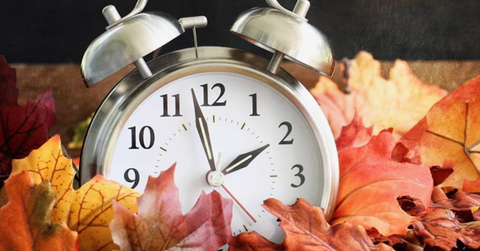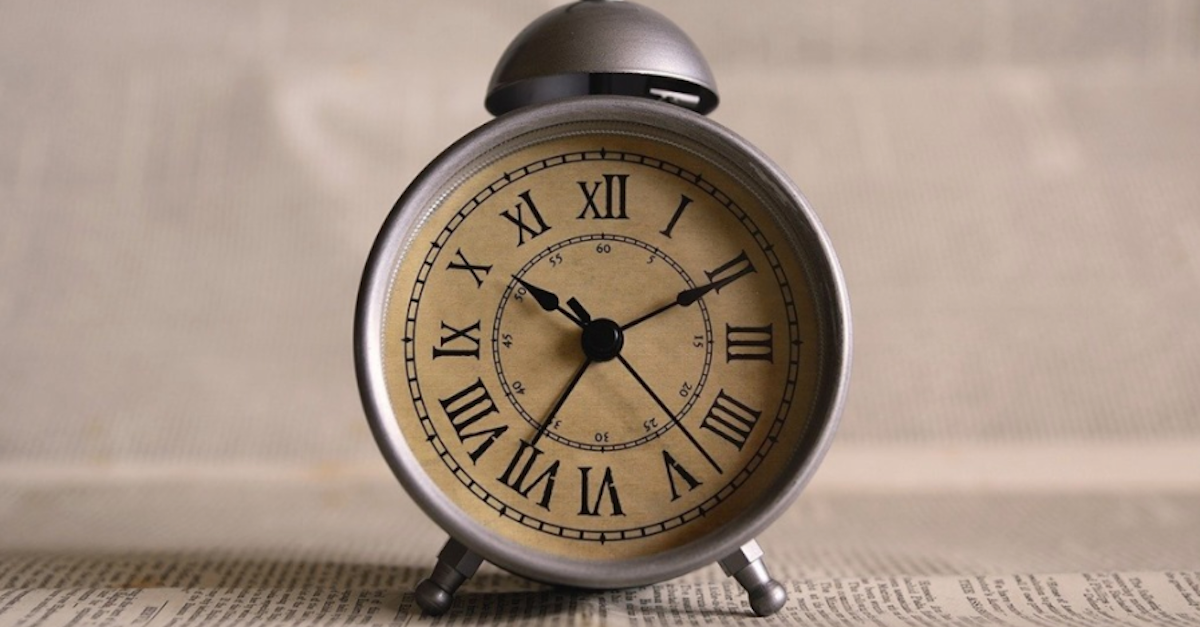Daylight Savings Has Been Around for Centuries — Here's Why It Started
Why is there daylight savings?
Updated Oct. 23 2020, 4:22 p.m. ET
It's almost that time of year, when most of us set our clocks back an hour, thus gaining an extra 60 minutes of sleep. Daylight savings time officially ends at 2 a.m. on Sunday, Nov. 1, 2020, and although we definitely don't mind cramming in a few extra z's, we can't help but wonder why we continue to participate in the somewhat disorienting biannual routine, after doing so for hundreds of years.
Why is there daylight savings? It turns out the scheduled practice has been around for centuries now, and the backstory is actually quite fascinating.
When and why did we start participating in daylight savings?
The concept of daylight savings is rumored to have been initially proposed by Benjamin Franklin in April 1784, in an essay he wrote called "An Economical Project for Diminishing the Cost of Light," according to Live Science. At the time, Franklin's proposal was almost entirely ignored, but Englishman William Willet revisited it years later in 1907, when he proposed it to the British House of Commons, which was mostly turned down as well.
Other countries started adjusting their clocks during the summer, but the U.S. didn't start partaking until World War I in 1918, to better conserve their energy resources, according to Marketplace. It was voted in by the House of Representatives 252 to 40, though there was initially some resistance in the U.S., according to Michael Downing's Spring Forward: The Annual Madness of Daylight Saving Time. However, it eventually stuck, and most U.S. states still participate, to this day.
Is daylight savings actually advantageous to farmers? Here's a look behind the long-standing rumor.
It turns out that rumor we've all heard — alleging that famers love daylight savings because it gives them more daylight to farm in the field — is actually completely false, according to The Washington Post. In fact, the agricultural community initially hated daylight savings, and they lobbied against it viciously for years. Less daytime meant they had to rush to bring their harvested crops to the market, and cows apparently don't adjust to schedule shifts.
Apparently, the Chamber of Commerce completely fabricated the rumor that farmers love daylight savings from the beginning, to convince people that it was beneficial, and to make them more excited for it. To this day, many people — including a handful farmers — believe that daylight savings is advantageous for those in the agricultural industry, though it doesn't actually make much of a difference at all.
Daylight savings may or may not also come with a slew of health benefits, according to TODAY, which mostly surround the benefits of getting more sleep, such as lowered chances of suffering from heart attacks, and better focus. In the end, it doesn't make too much of a difference, though we will be disappointed when there are less hours in the day during the pandemic, so make sure to get outside and take a socially-distanced walk with proper PPE in the daylight, while you can.



